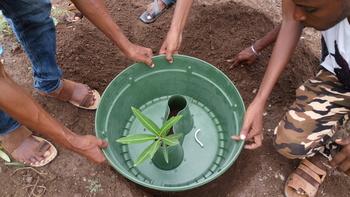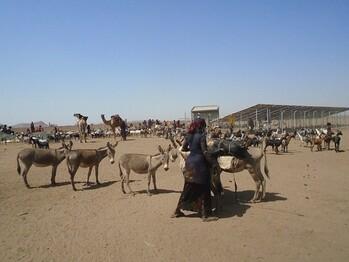Context
The lowlands of Ethiopia’s Afar Regional State are one of the least developed parts of the country. 48 per cent of the region’s land consists of marginal soils; the rest is largely dry savannah. Annual temperatures range from 25 to 50 degrees Celsius, while rainfall rarely exceeds 300 millimetres and is highly variable, both in quantity and geographical distribution. The Afar Region has a population of almost 1.5 million people, over half of whom live below the absolute poverty line. The region has some of the lowest development indicators in the country, including high infant mortality rates, child stunting and the highest proportion of underweight children in Ethiopia (36 per cent). Afar people derive their livelihood either entirely from pastoral livestock farming or from a combination of crop and livestock farming. However, traditional pastoral and agro-pastoral systems are under increasing pressure, due mainly to population growth and climate change. The increasing frequency of extreme, climate related weather events such as droughts, floods and related disasters have an increasingly adverse impact on food security, hygiene and health.
Objective
The capacity of the population and the responsible institutions to secure productive livelihoods and food for the long term is increased. Resilience to climate-induced weather extremes is improved.

